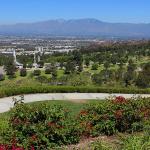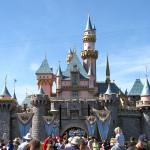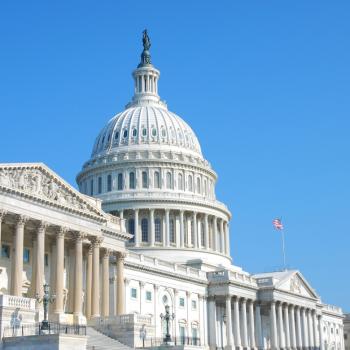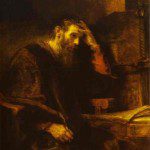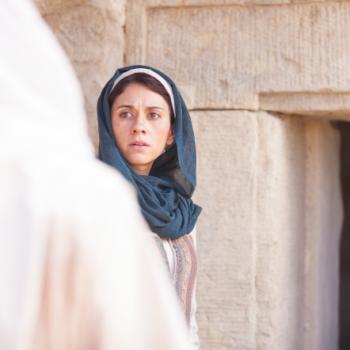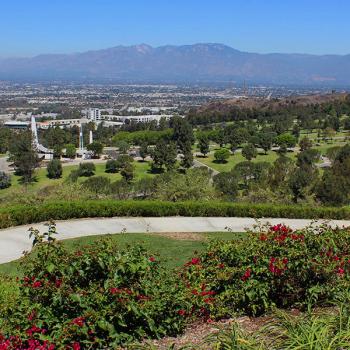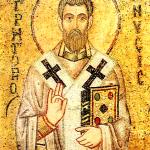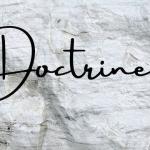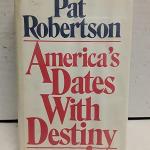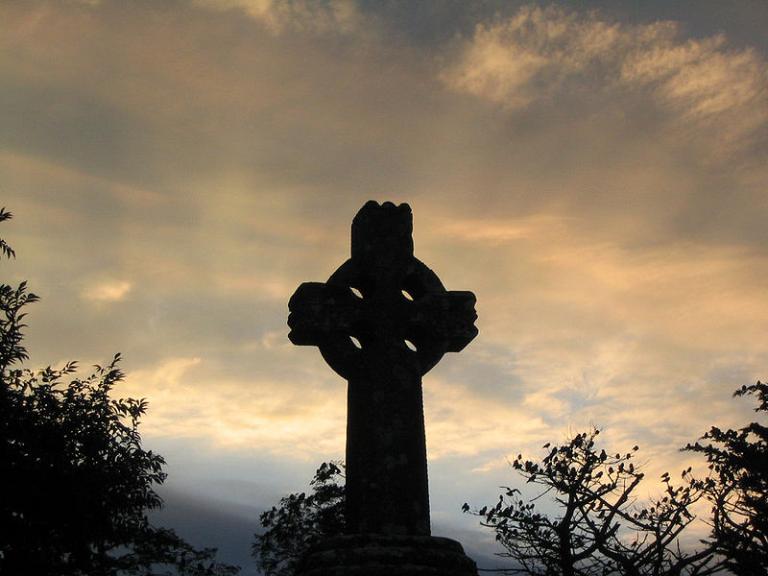
We had our special Easter service today, and it was an excellent one. We enjoyed various musical numbers on piano and violin, as well as a children’s choir and the ward choir and a very good talk by one of our sisters. For me, the male quartet singing Keith and Kristyn Getty’s “In Christ Alone” was worth the price of admission all by itself. You can listen to a performance of it online by, umm, a kind of male quartet. Or you can hear a rendition of it by the multiple Grammy-winning Alison Krauss.
Our speaker drew from the proclamation entitled “The Living Christ” that was issued in 2000 by the First Presidency and the Quorum of the Twelve, and encouraged us to read it today. (I’m struck, incidentally, by the fact that only four of those who signed it are still with us.) She also recommended the 2.5-minute video Because of Him. I strongly second her recommendations. And I now also commend to your attention the brief video testimonies of all fifteen of today’s living apostles, the final one of which — from President Russell M. Nelson — went up just today.
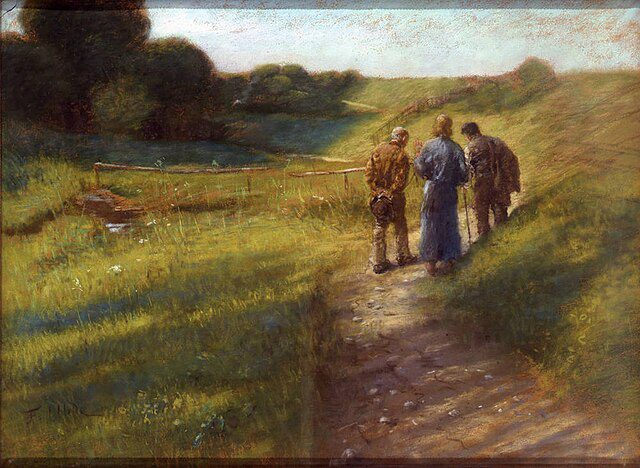
Wikimedia Commons public domain image
Owing to its unfamiliarity — because (to the extent that it’s even remotely possible) I would like people to hear this as fresh news — I quote from the Common English Bible rendition of Luke 24:13-35:
On that same day, two disciples were traveling to a village called Emmaus, about seven miles from Jerusalem. They were talking to each other about everything that had happened. While they were discussing these things, Jesus himself arrived and joined them on their journey. They were prevented from recognizing him.
He said to them, “What are you talking about as you walk along?” They stopped, their faces downcast.
The one named Cleopas replied, “Are you the only visitor to Jerusalem who is unaware of the things that have taken place there over the last few days?”
He said to them, “What things?”
They said to him, “The things about Jesus of Nazareth. Because of his powerful deeds and words, he was recognized by God and all the people as a prophet. But our chief priests and our leaders handed him over to be sentenced to death, and they crucified him. We had hoped he was the one who would redeem Israel. All these things happened three days ago. But there’s more: Some women from our group have left us stunned. They went to the tomb early this morning and didn’t find his body. They came to us saying that they had even seen a vision of angels who told them he is alive. Some of those who were with us went to the tomb and found things just as the women said. They didn’t see him.”
Then Jesus said to them, “You foolish people! Your dull minds keep you from believing all that the prophets talked about. Wasn’t it necessary for the Christ to suffer these things and then enter into his glory?” Then he interpreted for them the things written about himself in all the scriptures, starting with Moses and going through all the Prophets.
When they came to Emmaus, he acted as if he was going on ahead. But they urged him, saying, “Stay with us. It’s nearly evening, and the day is almost over.” So he went in to stay with them. After he took his seat at the table with them, he took the bread, blessed and broke it, and gave it to them. Their eyes were opened and they recognized him, but he disappeared from their sight. They said to each other, “Weren’t our hearts on fire when he spoke to us along the road and when he explained the scriptures for us?”
They got up right then and returned to Jerusalem. They found the eleven and their companions gathered together.They were saying to each other, “The Lord really has risen! He appeared to Simon!” Then the two disciples described what had happened along the road and how Jesus was made known to them as he broke the bread.
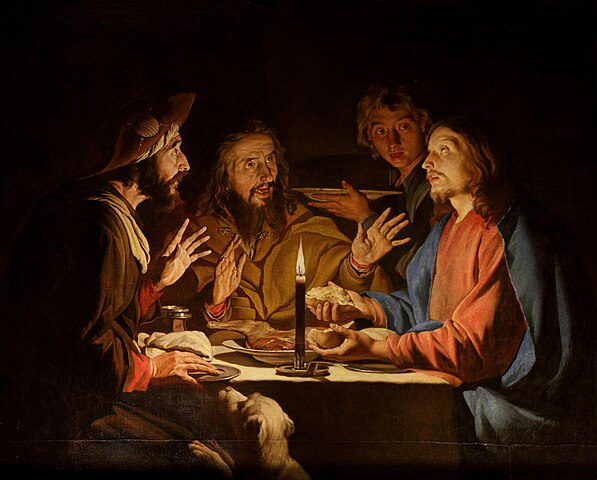
Wikimedia Commons public domain image
Unfortunately, we’re not certain today where Emmaus was. But it’s important to understand that the precise GPS coordinates of that village — like those of the hill in which Mormon buried the gold plates or those of the Jaredite city of Lib — are of, at most, secondary importance. The vitally important thing is the truth of the story.
“They were prevented from recognizing him,” says the Common English Bible version of Luke 24:16. “Their eyes were holden that they should not know him,” says the King James Bible, rendering the Greek somewhat more literally.
Our eyes, too, are typically “holden” — by the veil, by sin, by inattention, by pride, and by a host of other factors. Strikingly, though, they recognized him when “he took bread, and blessed it, and brake, and gave to them” (Luke 24:30 KJV). Perhaps there is something here upon which we should reflect during the weekly blessing and administration of the sacrament.
According to the Common English Bible translation of Luke 24:32, “They said to each other, “Weren’t our hearts on fire when he spoke to us along the road and when he explained the scriptures for us?” In the more familiar King James Version, the same passage reads: “And they said one to another, Did not our heart burn within us, while he talked with us by the way, and while he opened to us the scriptures?”
Please note the fact that, for the two disciples who had walked with the Lord on the road to Emmaus, a burning in the heart (compare Doctrine and Covenants 9:8-9) is identified as a valid means of recognizing the presence of the divine.
And, when at last the Savior’s identity had dawned upon them, “They got up right then and returned to Jerusalem. They found the eleven and their companions gathered together. . . Then the two disciples described what had happened along the road and how Jesus was made known to them as he broke the bread.”
They didn’t hesitate. They didn’t wait. They wanted to spread the news.
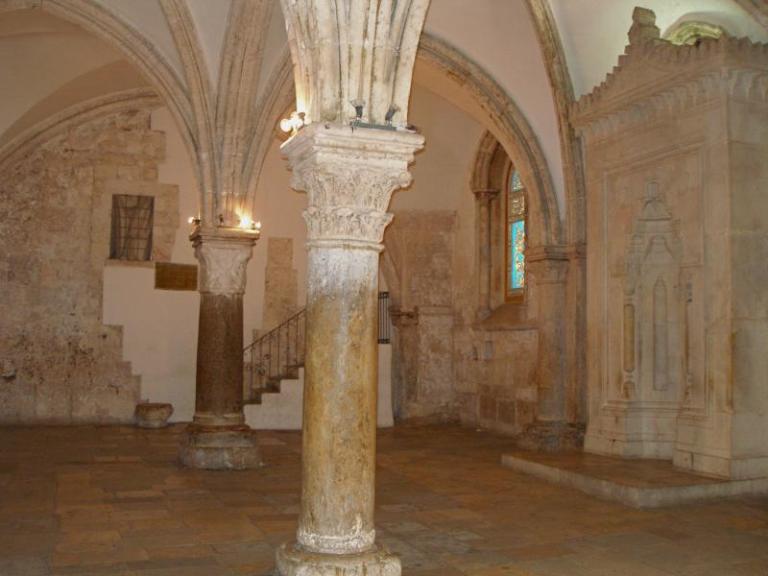
(Wikimedia Commons public domain photo)
The eleven surviving apostles and their companions (including the earliest Christian women) were gathered together because they were afraid, but their fear was shortly to be transformed into a fearlessness that would change the world:
Then the same day at evening, being the first day of the week, when the doors were shut where the disciples were assembled for fear of the Jews, came Jesus and stood in the midst, and saith unto them, Peace be unto you. (John 20:19 KJV; Luke 24:35-40 strongly implies that the two disciples from the road to Emmaus had just joined before this appearance and, so, were probably there to experience it as well)
Did the apostles and their companions have sound reason to be afraid? Yes. Absolutely. Given what had just been done to their Master, they understandably feared death. What do we have to fear? For most of us, spreading the news of the resurrection of Jesus and, now, of the Restoration, exposes us merely to — at the very worst — mockery and derision, including the cynical incomprehension of the media elite.
But so what? “The Lord really has risen!”
Χριστὸς ἀνέστη! Ἀληθῶς ἀνέστη! “Christ is risen! Truly, he is risen!”


